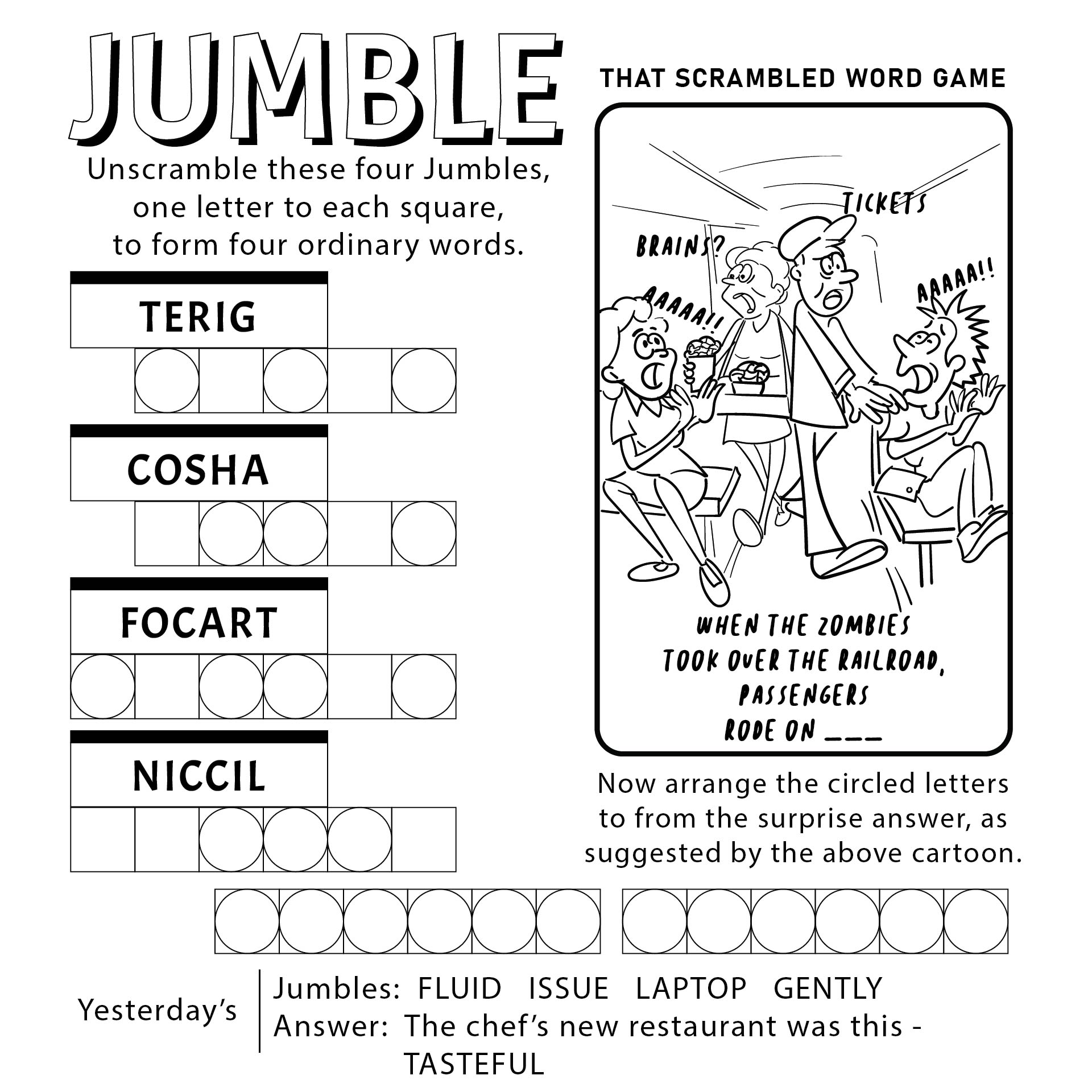
However, the codes can only be scrambled so much before we get lost.

#JUMBLE WORDS FOR KG CODE#
When we scramble it up in another way (such as “ancdircog”), it can be much less recognizable.Īll told, we’re code-making machines (we speak the code of English) and we’re wired to find meaning in text, in part by looking at contextual cues. Double letters are contextual markers that give good hints. For example, in the word according, the scrambled email keeps the cc intact (“aoccdrnig”). Other factors play into it as well, like preserving double letters. Here’s a big one: the passage is readable because it’s predictable-that is, the topic is logically explained, with context providing very good clues about what words will be used. We understand scrambled words better when their sounds are preserved: toatl vs. When letters farther apart are switched, it’s harder. Letters beside each other in a word can be switched without much creating much difficulty for the reader. Switching (or transposing) the letters makes a big difference. Function words ( be, the, a, and other words that provide grammatical structure) can’t be jumbled, or else the reader will likely struggle.ģ. Here are some other factors a jumbled passage needs in order for most people to easily read it:ġ. What makes a scrambled word easier to read? However, it’s much more complicated than that. That trending email led us to believe all we need is for “the first and last letters to be in the right place” and nothing else matters. There’s a reason we call them “sight words.” Here are some great sight word activities to help your child learn to read and write.īut here’s where Davis reminds us why the daily Word Jumble still manages to scramble our brains for breakfast. That’s one of the factors explaining why we can “magically” read the message. Here’s what Davis believes the email got right: unless you have a rare brain disorder, people read words as whole units, not letter-by-letter. Matt Davis, a researcher at the MRC Cognition and Brain Sciences Unit at Cambridge University, helped us sort it out. Is typoglycemia real or a trick?ĭoes it take you nanoseconds to solve a Word Jumble? No? While your brain can breeze through some word scrambles, it’s more complicated than that viral email suggests. Still, though the word may sometimes be referenced in actual research, it’s not a formal term, nor is it all that commonly used outside the context of such memes. Typoglycemia can refer to to the phenomenon in which words can be read despite being jumbles, or it can refer to the ability to read such texts. The word-scrambling phenomenon has a punny name: typoglycemia, playing with typo and glycemia(the condition of having low blood sugar). Tihs is bcuseae the huamn mnid deos not raed ervey lteter by istlef, but the wrod as a wlohe.Ĭould you read it? Even with a mistake in this viral email (the letters in rscheearch cannot spell researcher), the truth is that most fluent English speakers can read and understand it. The rset can be a toatl mses and you can sitll raed it wouthit porbelm. That viral email tested our ability to read scrambled words. Here’s what it looks like:Īoccdrnig to a rscheearch at Cmabrigde Uinervtisy, it deosn’t mttaer in waht oredr the ltteers in a wrod are, the olny iprmoetnt tihng is taht the frist and lsat ltteer be at the rghit pclae. There’s more to scrambled words than meets the eye. However, as interesting as the original email was, it didn’t actually tell the whole truth. Starting around 2003, an email began to circulate claiming that scrambled English words are just as easy to read as the original words.

Just by learning a few words and following a couple of tips, you can easily beat your opponent in the next game, even if you're a complete noob.Ever heard of typoglycemia? Even if you haven’t, chances are you’ll recognize one of the viral puzzles used to demonstrate the phenomenon. It’s fine if you just wanna win or settle disputes with your teammates but you should also aim to learn and improve your word game strategy to make it easier to score in every play. Word Unscrambler helps you find valid words for your next move using the lettered tiles available at your hand. Often useful in discovering top scoring words for Scrabble, Words with Friends, Wordle, Wordscapes, Wordfeud, TextTwist, Word Cookies, Anagrams etc. Word Unscrambler is a simple online tool for unscrambling and solving scrambled words,


 0 kommentar(er)
0 kommentar(er)
